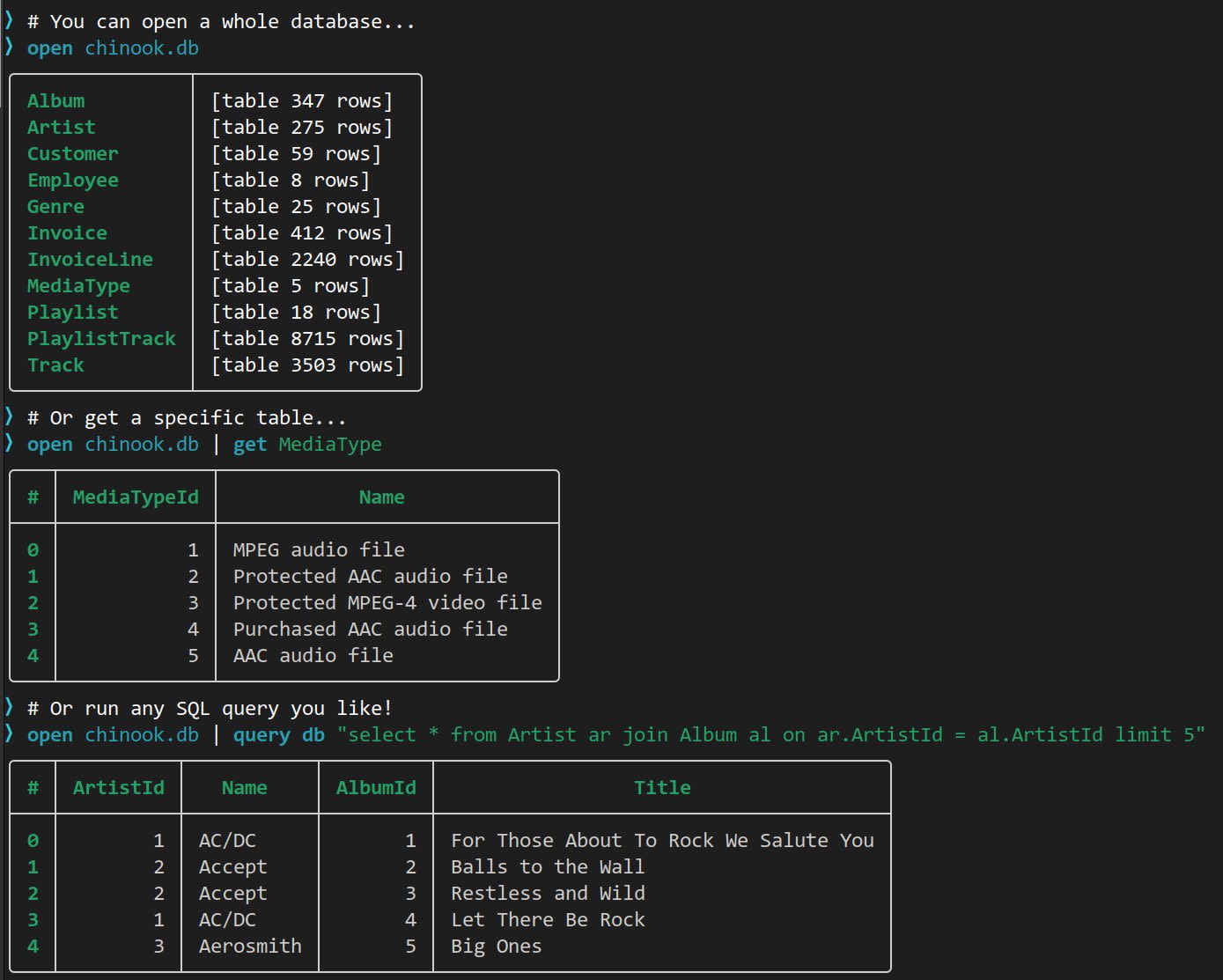Recent Nushell/Rust Work
SQLite, file watcher, windows-rs
I’ve joined the Nushell core team. This doesn’t really change what I’m doing day-to-day, but it makes my work on Nu feel a little more official 🙂.
SQLite Support
This is the biggest feature I’ve implemented so far:

I’m pretty proud of how this turned out; it’s very convenient to be able to browse SQLite databases in your shell and interact with them the same way you would any other data source. Nu is often-but-not-always smart enough to avoid unnecessary work when loading things from the database; there’s still some work to do here and it will probably involve rearchitecting how Nushell queries data.
File watcher
I also implemented a watch command that runs arbitrary Nu code in response to file changes. Nothing groundbreaking, but I find myself needing this kind of low-key automation all the time: run tests when code changes, restart a development server, log changes in a directory, etc. I think the ability to respond to file changes should be a more widely available primitive, and now it is.
Rust for Windows
Against all odds, I somehow got sucked back into Windows development. I spent a solid week helping one of Nushell’s dependencies do a big upgrade of their Windows functionality. This required a deep dive into the current state of calling Windows APIs from Rust, and… it’s a mixed bag.
I used the windows crate which is maintained by Microsoft. It’s an automatically generated set of Rust bindings for Windows APIs, which is both good (very comprehensive, always kept up to date) and bad (some rough edges that might be solved in a handmade solution like winapi). The crate is actively being worked on and it frequently has breaking changes; this means documentation is a little scarce and often out of date. Overall I was impressed and I think the crate has a bright future  . But until it settles down a bit, expect some growing pains.
. But until it settles down a bit, expect some growing pains.



